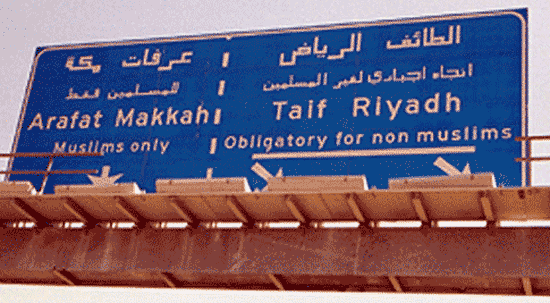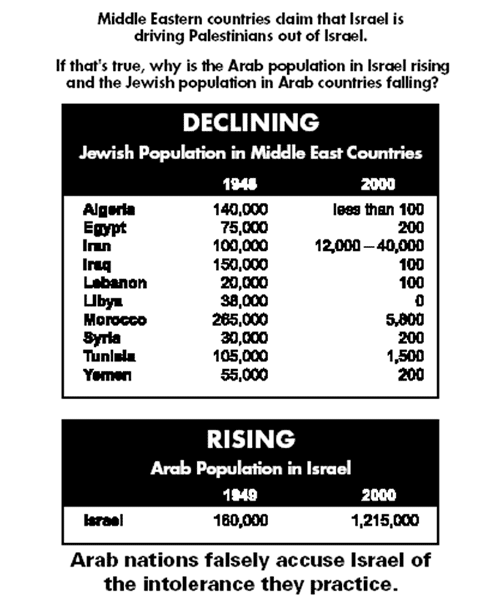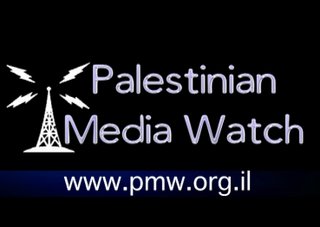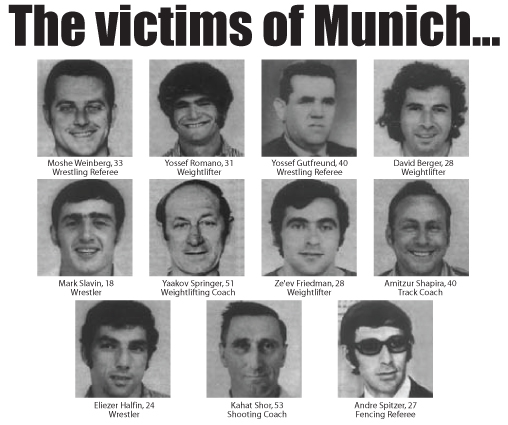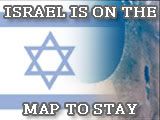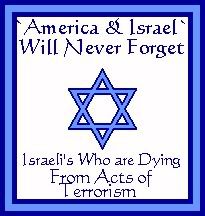ISLAMIC REPUBLIC OF IRAN’S PERSECUTION OPPRESSION OF MINORITIES - ISLAMIC APARTHEID
In General, Christians, Baha’i, Kurds, Jews, Azeris, Baluchis, Ahwazi Arabs
Again, religious persecution in IranFebruary 20, 2009
Ethel C. Fenig
As Thomas Lifson noted yesterday Iranian authorities destroyed a Sufi holy site, continuing their practice of pressuring and discriminating against religions that do not strictly follow the Shi’ite form of Islam. But the Sufis are not the only religious minority suffering discrimination in Iran.
The 2500 year old Jewish community, which numbered over 80,000 thirty years ago at the time of the Khoemeni Revolution which overthrew the Shah, has dwindled to about 20,000. Those remaining Jews live restricted personal and religious lives, always under suspicion of being traitors for pro “Zionist” activities.
Despite the official distinction between “Jews,” “Zionists,” and “Israel,” the most common accusation the Jews encounter is that of maintaining contacts with Zionists. The Jewish community does enjoy a measure of religious freedom but is faced with constant suspicion of cooperating with the Zionist state and with “imperialistic America” — both such activities are punishable by death. Jews who apply for a passport to travel abroad must do so in a special bureau and are immediately put under surveillance. The government does not generally allow all members of a family to travel abroad at the same time to prevent Jewish emigration. Again, the Jews live under the status of dhimmi, with the restrictions im posed on religious minorities. Jewish leaders fear government reprisals if they draw attention to official mistreatment of their community.
Iran’s official government-controlled media often issues anti-Semitic propaganda. A prime example is the government’s publishing of the Protocols of the Elders of Zion, a notorious Czarist forgery, in 1994 and 1999.2 Jews also suffer varying degrees of officially sanctioned discrimination, particularly in the areas of employment, education, and public accommodations.
The Islamization of the country has brought about strict control over Jewish educational institutions. Before the revolution, there were some 20 Jewish schools functioning throughout the country. In recent years, most of these have been closed down. In the remaining schools, Jewish principals have been replaced by Muslims. In Teheran there are still three schools in which Jewish pupils constitute a majority. The curriculum is Islamic, and Persian is forbidden as the language of instruction for Jewish studies. Special Hebrew lessons are conducted on Fridays by the Orthodox Otzar ha-Torah organization, which is responsible for Jewish religious education. Saturday is no longer officially recognized as the Jewish sabbath, and Jewish pupils are compelled to attend school on that day. There are three synagogues in Teheran, but since 1994, there has been no rabbi in Iran, and the bet din does not function.
At least 13 Jews have been executed in Iran since the Islamic revolution 30 years ago, most of them for either religious reasons or their connection to Israel. For example, in May 1998, Jewish businessman Ruhollah Kakhodah-Zadeh was hanged in prison without a public charge or legal proceeding, apparently for assisting Jews to emigrate.
Other religious groups are persecuted too. This week Iran admitted that seven Bahai leaders arrested and detained more than eight months ago would be charged with spying for Israel.
The Bahai faith, which began in the 19th century in what is now Iran, claims their founder, Baha’a'llah, is the last Moslem prophet, not Mohammed. Bahai’s international headquarters are located in Haifa, Israel where Bahais, along with Moslems and Christians of various backgrounds, plus other religions in addition to Jews can practice freely.
This is not true in Iran.
Bahais claim 300,000 followers in Iran, but there are no independent statistics on the denomination’s size in the country. The Islamic republic allows Christians, Jews and Zoroastrians, who are regarded as members of monotheistic religions, to hold religious gatherings. Bahais are forbidden to hold such meetings, and those who make their faith public are banned from studying at universities serving in the army and working in government offices.
The Iranian prosecutors claim
“All evidence points to the fact that the Bahai organization is in direct contact with the foreign enemies of Iran,” Dorri-Najafabadi wrote in the letter, (snip) “The ghastly Bahai organization is illegal on all levels, their dependence on Israel has been documented, their antagonism with Islam and the Islamic System is obvious, their danger for national security is proven and any replacement organization must also be dealt with according to the law,”
This charge is part of the latest prosecution against Iranian Bahais.
Religious minorities in Iran: Information from Answers.com
Q&A: Iran’s Waning Human Rights - New York Times, Iran is a party to the International Covenant on Civil and Political Rights, which affords legal rights to minorities and minors. Persecution of religious minorities …
—
AZERIS
Persecution, Tension and Awakening in Northern Iran - The Henry …Many Azeris view themselves as something of a sleeping giant in Iranian politics … and Azeris, but of Arabs, Kurds, Balochs, Turkmen and other minorities, …
http://www.henryjacksonsociety.org/stories.asp?id=343UNPO - UNPO General Assembly Joint Member Resolution… repression and persecution of ethnic and religious minorities in Iran, … The Ahwazi Arab, Azeri Turk, Balochi and Kurdish nation members of UNPO …
http://www.unpo.org/content/view/8296/259/Amnesty Blogs: Hurry Up Hurriyat : Ethnic minority journalists in Iran, Aug 29, 2008 …Iran minorities journalist journalists arab balochi kurd … Azizi’s case is part of a growing trend in Iran against journalists from Arab, Azeri, … restive amid claims of cultural persecution and discrimination. …
http://blogs.amnesty.org.uk/blogs_entry.asp?eid=1842Iran Working Group examines the situation of ethnic and religious minorities
2008-03-17
LEADERSHIP COUNCIL FOR HUMAN RIGHTS
Washington, D.C. – On Thursday, March 13 representatives of Iran’s ethnic and religious groups testified at a meeting of the Iran Working Group, a Congressional body co-chaired by Congressman Mark Kirk and Congressman Robert Andrews. The Leadership Council for Human Rights assisted in organizing the hearing, which included testimony from Fakhteh Zamani, Director of the Association for the Defense of Azerbaijani Political Prisoners; Sharif Behruz, U.S. Representative of the Democratic Party of Iranian Kurdistan; Kit Bigelow, Director of External Affairs for the National Spiritual Assembly of the Baha’is of the U.S.; Dr. Ali Al-Taie, Professor at Shaw University and author of The Arabs of Khuzestan and Iran; Dr. M. Hosseinbor, Iranian Baluchi and author of Iran and Its Nationalities: The Case of Baloch Nationalism; and Nina Shea, vice chair of the U.S. Commission on International Religious Freedom.
LCHR President Kathryn Cameron Porter served as moderator. Porter stressed the importance of seeking solidarity among Iran’s diverse marginalized groups in order to promote human rights for all persecuted peoples.
Rep. Kirk, who convened the working group meeting, said the treatment of Iran’s minorities was a bi-partisan issue of concern. He spoke about the importance of Iran in the future of the United States’ foreign policy, and warned about the danger of failing to understand the country’s complexities and making cultural mistakes.
Nina Shea gave a comprehensive summary of the International Religious Freedom Report on Iran, describing “systematic, ongoing persecution based primarily or entirely upon religion.” Iran’s constitution recognizes Christians, Jews and Zoroastrians, as well as non-Shi’a Muslims, as members of official minority religions, but there are severe limitations upon the rights of these groups. According to the International Religious Freedom Report, religious minorities “face substantial societal discrimination, and government actions continued to support elements of society who create a threatening atmosphere.”
Groups that are not recognized face even greater problems, as illustrated by the testimony of Kit Bigelow. More than 200 Baha’is have been killed in Iran since 1978 and countless more have been imprisoned, attacked and harassed, she said. The elimination of the Baha’is is explicit government policy, meaning that they face arbitrary arrest, imprisonment, and defamation from the government sponsored media on a daily basis.
Since Ahmadinejad came to power there has been a new wave of discrimination against Baha’is, Bigelow said. A new draft penal code is currently being considered which specifically requires the death penalty as a punishment for apostasy, and it is thought that this is a direct threat against the Baha’i community which is regularly condemned for apostasy by the authorities.
Discrimination goes beyond religion. Iran is home to many distinct ethnic groups with their own identities and languages. Persians, the dominant ethnic group in Iran, in fact constitute just 45 percent of the population, said Dr. Hosseinbor. The remaining 55 percent of the population, made up of Kurds, Baluchis, Arabs, Azeris, Turkmen and Turks, tend to be spread around the outside of the state, often splitting their population between two or three countries.
Sharif Behruz said that the poorest areas of Iran are those populated by ethnic minorities. Lack of investment has resulted in a comparatively low quality of life.
One of the biggest grievances of Iran’s ethnic minorities, expressed by all the representatives of minority groups present at the meeting, is the restriction on cultural rights, particularly the use of minority languages. Kurds, Azeris, Baluchis and other minorities are not permitted to use their mother tongue in schools, and there are significant barriers to the publishing of books. This is just one part of a larger policy of “forced assimilation” which, according to Fakhteh Zamani, has been put in place by the rulers of Iran since the 1920s.
The state-sponsored media also runs defamation campaigns, she said, including openly insulting Azeris, depicting them as intellectually challenged characters, and generally perpetuating the misconception that they are “backward”- a stereotype held by many due to the fact that they are not fluent in Farsi, the official national language.
Under the Islamic Republic, said Sharif Behruz, people are systematically repressed, and minorities are viewed as second class citizens: “unlawful detentions, torture, harassment, executions and disappearances have become a daily routine in the Kurdish areas,” he said.
Behruz said that in order to move forward and develop Iran must become “democratic and decentralized.” This would “recover its devastated economy, create political stability inside and assist in bringing about stability, security in the region, and most importantly, as an effective member of the international community can strengthen world peace.”
Congresswoman Sheila Jackson Lee emphasized the importance of continuing to speak up for these minority groups. “Every government can be judged by its treatment of ethnic and religious minorities,” she said, “and Iran would get a failing grade.”
http://www.pdki.org/articles1-1337-83.htmMany Azeris see Iranian hand behind wave of unrest
Iran is working hard to become the leader of the global jihad. By Ilan Greenberg in the International Herald Tribune, with thanks to Twostellas:
BAKU, Azerbaijan: An article denigrating Islam published early last month in an obscure newspaper here in the capital has led to emotional demonstrations across Azerbaijan and in Iran. A prominent Iranian cleric demanded the death of the two writers of the article, who have been imprisoned in Azerbaijan.
The article blamed Islam for Azerbaijan’s meager development and likened the Prophet Muhammad to a used handkerchief. The ensuing furor echoes the case of the Danish cartoons published in September 2005 that mocked Islam and that, months later, generated protests throughout the Muslim world.
Here, the thunderous rhetoric from village imams and other religious conservatives has sent tremors through the Azeri government and the secular elite of the nation.
“I am for freedom of speech but not the freedom to insult,” said Haji Ilgar, an imam at the Jama Old City Mosque in Baku who is often critical of the government of the secular president, Ilham Aliyev. “The only solution is to take this to the courts.”
Many Azeris see the roots of the trouble in what they consider Iran’s shadowy influence here. The two countries have had an often prickly relationship since Azerbaijan’s independence from the Soviet Union in 1991. Iran is the regional power, and Azerbaijan is an up- and-coming oil state, tucked between Iran and Russia on the Caspian Sea.
Both Iran and Azerbaijan are Shiite, but Azeris fear that Iran wants to destabilize the country by spreading its brand of militant Islam across the border. Iran is struggling to deal with a large minority — upwards of a third — of Iran’s 66 million people who are ethnic Azeri, a beleaguered minority that frequently agitates for more rights and cultural autonomy. Iran does not want them to get any ideas from a secular and prospering Azerbaijan, in this view.
http://www.jihadwatch.org/archives/014536.php—
AHWAZI - ARABS
The British Ahwazi Friendship Society campaigns on behalf of the Ahwazi Arabs, an indigenous ethnic group persecuted by successive Iranian governments. …
http://www.ahwaz.org.uk/Middle East transfer: The continuing Iranian persecution of its Ahwazi Arab population … Over a million Arabs have been deported from the district of Al-Ahwaz, home to some eight million Arabs, in Southern-East Iran, near the Iraqi border. …
http://www.henryjacksonsociety.org/stories.asp?id=366Ahwazi: WS on the Case of Ahwazi Arabs in Iran, These persons, all members of Iran’s Ahwazi Arab minority were … According to reports, demonstrators were demanding an end to the persecution of Arabs, …
http://www.unpo.org/article.php?id=3985Look Who’s Persecuting Their Arab Minority! Persecution of an Arab minority. Confiscation of Arab land. Ethnic cleansing. It’s just another day in…Iran. … Tehran has a grand plan to make the Ahwazi a minority in their own land through … As I have written from time to time, Islam is very unpopular in Iran …
http://daledamos.blogspot.com/search/label/Iran—
CHRISTIANS
—
BAHA’I
Clergy gather to protest Iran’s persecution of the Bahai Faith
Organizers say if a government can persecute one religion, all faiths are at risk
April 09, 2009
By john darling
for the Mail Tribune
Leaders of several faiths are gathering Saturday in Medford to protest the persecution of members of the Bahai Faith under the Iranian government and to show support for a resolution by U.S. Sen. Ron Wyden, D-Ore., calling for the release of prisoners being held in Iraq for their faith.
http://www.mailtribune.com/apps/pbcs.dll/article?AID=/20090409/NEWS/904090321/-1/LIFE—
KURDS
The Plight of Iran’s Kurds | The Middle East InstituteIndeed, to understand the plight of Kurds in Iran, Amitay contended, … coupled with what Amitay characterizes as the persecution of Kurds in Turkey, …
http://www.mideasti.org/summary/plight-irans-kurdsForgotten people: the world and the Kurds. (persecution of Kurds …(persecution of Kurds in Iran and Iraq after the cease-fire) … find The Nation articles. We’re living through hard times,” a Kurdish father tells his son …
http://www.highbeam.com/doc/1G1-7849315.htmlTestimony of Sharif Behruz, Democratic Party of Iranian …Mar 13, 2008 … The Kurdish area of Iranian Kurdistan is 125000 sq km which is about 8 … most of the Kurds in Iran suffer from triple layers of oppression …
http://www.pdki.org/articles1-1346-28.htmIran: Freedom of Expression and Association in the Kurdish Regions …Jan 9, 2009 … (A list of persons who faced governmental persecution as a result of ….. [62] “Iran: Kurdish Teacher Tortured, Sentenced to Death,” Human …
http://www.hrw.org/en/node/79044/section/7Plan for Autonomy of Iranian Kurdistan… The National Council of Resistance of Iran (NCRI) is the parliament-in-exile of … and in order to overcome the double oppression of the oppressed Kurdish nationality. … 1- The autonomous region encompasses all of Iranian Kurdistan. …
http://ncr-iran.org/content/view/32/—
JEWS
THE IRANIAN: Jews in Iran, Pooya Dayanim, Mar 12, 2003 … The Islamic Republic reminds Iranian Jews of their uncertain fate and …. Iranian Jews face severe discrimination and persecution in Iran. …
http://www.iranian.com/Opinion/2003/March/Jews—
BALUCHIS
Pakistan/Iran: The Baluchi Minority’s ‘Forgotten Conflict’
October 25, 2007
By Abubakar Siddique
October 25, 2007 (RFE/RL) — The Baluchi minority in southwestern Pakistan and southeastern Iran is increasingly marginalized, discriminated against by the state, and suffers from limited access to the benefits of citizenship, according to political observers and human rights groups.
Although the 6 million-8 million ethnic Baluchis in both countries live in a strategic location atop untapped hydrocarbon and mineral deposits and possible trade routes, it looks unlikely that their grim conditions will improve soon.
A report released on October 22 by the International Crisis Group argues that only free and fair elections are likely to encourage Baluchi participation in Pakistani politics. The Brussels-based think tank predicts that in the absence of political reconciliation, violence will continue unabated between Pakistan’s military and Baluchi nationalist militants demanding political and economic autonomy.
“The Baluch people think their resources are being monopolized by the government, that their land and their resources are not their own, and that there is no freedom to express their opinions.” — I.A. Rehman, Human Rights Commission of Pakistan
Baluchi leaders claim to be fighting for autonomy and control over their people’s abundant natural resources, but Islamabad regards them as revolutionaries bankrolled by regional archrival India. Years of armed insurrection have killed hundreds of Baluchi militants, Pakistani troops, and civilians.
I.A. Rehman, the director of the Human Rights Commission of Pakistan, an independent group that monitors human rights abuses, says the fighting has displaced thousands of Baluchis in the insurgency-plagued districts of Dera Bugti and Kohlu. Rehman told RFE/RL’s Radio Free Afghanistan that the government’s strong-arm tactics to suppress the insurgency have created a troubling human rights situation.
“There is the question of the suppression of all dissent. The cases of the disappeared people are only the tip of the problem,” Rehman said. “The real issue in Baluchistan is that the Baluch people think their resources are being monopolized by the government, that their land and their resources are not their own, and that there is no freedom to express their opinions.”
Displaced Or Missing
The International Crisis Group calls the Baluchi plight a “forgotten conflict.” It maintains that the fighting has so far displaced 84,000 people, while thousands of Baluchi nationalist activists languish in jails and hundreds remain missing.
The Pakistani government meanwhile claims to be pouring billions of dollars into major infrastructure-development projects, including a new port on the Arabian sea coast at Gwadar, along with the construction of major roads, rail networks, dams, and new cantonments. Other ambitious projects are aimed at extracting gold, copper, oil, gas, and minerals in Baluchistan Province, which accounts for nearly half of Pakistan’s territory and is home to some 8 million people, about half of them ethnic Pashtuns.
But many Baluchis oppose such projects and regard them as unfair efforts to exploit their land. Mariana Baabar, an Islamabad-based journalist and political commentator, says the Baluchis are among the most impoverished groups in the country, and require assistance to meet basic needs as well as longer-term development efforts.
“They do not have clean drinking water. They are not being provided with [basic] health care or education. And they are even regarded as not being part of Pakistan,” Baabar said. The Pakistani government “is trying to build a port in Gawadar, but, again, non-Baluchis from Punjab and other regions are being taken there [to settle]. So that is why the people of Baluchistan are unhappy.”
Poverty, Discrimination
Across the border in neighboring Iran, Baluchis are enduring similar woes. There some 2 million Baluchis concentrated in Iran’s southeastern Sistan-Baluchistan Province, representing about 2 percent of the country’s total population.
Drewery Dyke, a Middle East researcher for human rights watchdog Amnesty International in London, told Radio Free Afghanistan that Iran’s Baluchi population is subject to economic and cultural discrimination. Sistan-Baluchistan is “certainly one of the poorest and most deprived provinces in the country. And it has suffered droughts and extreme weather conditions. And certainly — with respect to the situation of women and schooling for girls — there are shortcomings that the state really needs to address,” Dyke said.
In a September report that Dyke helped research, Amnesty International documented rights abuses by Iranian authorities and the armed Baluchi and hard-line Sunni group Jondallah (which has reportedly been renamed the Iranian Peoples’ Resistance Movement). Since 2005, Jondallah appears to have carried out lethal attacks on Iranian security forces, and taken and executed hostages. Iranian authorities have blamed Jondollah for other attacks that resulted in civilian casualties, but the group has denied responsibility.
Amnesty International has criticized the arrest of suspected Baluchi militants who might have been subjected to torture to produce forced confessions. The group has expressed concern over special judicial procedures put in place by Iranian authorities, and a steep rise in the number of Baluchis who have been targeted.
Dyke said the Iranian authorities “have established a special court…almost like a security court to deal with what is obviously a very severe situation — in some respects, an insurgency in the country. It appears to [have led] to a decline, an erosion of the safeguards, [of] the fair-trial standards and a massive rise in the implementation of the death penalty against the Baluchis.”
The plights of their respective Baluchi minorities are unlikely to improve in the short term. In the best-case scenario, human rights advocates in Pakistan maintain that the coming national elections in Pakistan — if they are sufficiently transparent — might boost Baluchi participation in mainstream politics. That, they say, could provide incentives that help defuse militancy…
http://www.rferl.org/content/article/1079022.htmlStop the execution of 5 Baloch innocent young men
Reza Hossein Borr
London- 25.11.08– After the demolition of Azim Abad mosque in Balochistan on 27 August 2008, several students and teachers were arrested for expressing their discontent about the demolition of the mosque. Five of them are now on trial on fabricated charges of having links with the People’s Resistance Movement of Iran, Jondollah. Everybody in Baluchistan knows quite well that these are simple teachers and students that have no any kind of links with any armed group or political organizations.
The Islamic Republic of Iran claimed that their trial has been open to the public and the parents of the victims were also present. That regime portrays this trial as if the innocent teachers and students were guilty of some criminal activities in which innocent people have died. This is a new farce of a new kind. The government destroyed the mosque and arrested several teachers and students. They are the victims. There is no any other victim. What a regime! What an Islamic Republic? What an Islamic Republic of Iran? What an Islam in which all sins are allowed! The regime demolishes a mosque, arrests many people for protesting against it and then they stage manage a dramatic trial and claim that there were some people who were victimized by those teachers and students that were arrested.
http://www.thebaluch.com/112508_pressRelease_b.phpKarim Abdian, Ph.D., executive director of the Ahwaz Human Rights Organization, USA , who represents the Ahwazi Arabs in Iran , deplored the continued violation of human rights of the smaller nationalities in Iran and mentioned the hanging of Baluch journalist and human rights campaigner Yaqub Mehrnihad.
http://www.thebaluch.com/081608_release.phpAmerican Chronicle | Appeal to Save the Lives of 2 Baloch Teachers …For these reasons, the Baluchs are widely persecuted and undeservedly vilified in Iran. A few days ago, two Baluch religious leaders and teachers, …
http://www.americanchronicle.com/articles/57991